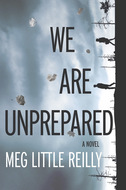Kitap dosya olarak indirilemez ancak uygulamamız üzerinden veya online olarak web sitemizden okunabilir.
Kitabı oku: «The Innocents Club»
Praise for the novels of TAYLOR SMITH
“The Innocents Club is an exciting espionage thriller….”
—Midwest Book Review
“Fifteen rounds of sturdy international espionage-cum-detection….”
—Kirkus Reviews on The Innocents Club
Taylor Smith…John Grisham “…it’s a perfectly plausible comparison—though Smith’s a better prose stylist.”
—Publishers Weekly on Random Acts
“The mix of suspense, forensic science, romance and mystery make this a real page-turner.”
—Orange Coast on Random Acts
“The story line is fast-paced and filled with numerous twists…Taylor Smith…continues her amazing rapid climb to the top rung…”
—Painted Rock Reviews on Random Acts
“Sharp characterization and a tightly focused time frame…give this intrigue a spellbinding tone of immediacy.”
—Publishers Weekly on The Best of Enemies
“The pace is swift and the action is concentrated…making it a perfect summer read.”
—Orange Coast on The Best of Enemies
“In this absorbing tale…characters are engaging…”
—Publishers Weekly on Common Passions
Also available from MIRA Books and TAYLOR SMITH
GUILT BY SILENCE
COMMON PASSIONS
THE BEST OF ENEMIES
RANDOM ACTS
DEADLY GRACE
The Innocents Club
Taylor Smith
This book could only be for Amy Moore-Benson, with heartfelt gratitude for her insight, her perseverance and her unflagging grace. Here’s to the wonder of new beginnings.
ACKNOWLEDGMENT
My deepest thanks to those who offered their expertise and encouragement throughout this project. If I played fast and loose with the facts, it’s through no fault of theirs. I am especially grateful to members of the Newport Beach Police Department, who have been extraordinarily kind and helpful, particularly Dale Johnson, Don Gage, Ken Cowell, Mike Jackson and Dave Sperling. Thanks, too, to Dr. Ed Uthman, Ken Keller, Gary Bale and Luis Hernandez for coming up with answers when I needed them. For unflagging moral support, I thank Patricia McFall, Philip Spitzer, the Fictionaires (Orange County’s finest fiction writers) and family members near and far (most especially my wonderful Richard, Kate and Anna, who make life a joy even on the darkest of days).
No one could be more thankful than I for the steadfast commitment and hard work of the talented people at MIRA, beginning with Editorial Director Dianne Moggy. My warmest thanks to them all, most particularly Randall Toye, Katherine Orr, Stacy Widdrington, Greg Sarney, Heather Locken, Krystyna de Duleba and her brilliant design team, and, last but never least, Alex Osuszek and his enthusiastic team, the folks who bring stories and readers together.
To forget one’s ancestors is to be a brook without a source, a tree without a root.
—ancient Chinese proverb
Contents
Thursday, July 4
Prologue
Monday, July 1
Chapter One
Tuesday, July 2
Chapter Two
Chapter Three
Chapter Four
Chapter Five
Chapter Six
Chapter Seven
Chapter Eight
Chapter Nine
Wednesday, July 3
Chapter Ten
Chapter Eleven
Chapter Twelve
Chapter Thirteen
Chapter Fourteen
Chapter Fifteen
Chapter Sixteen
Chapter Seventeen
Chapter Eighteen
Chapter Nineteen
Chapter Twenty
Chapter Twenty-One
Chapter Twenty-Two
Thursday, July 4
Chapter Twenty-Three
Chapter Twenty-Four
Chapter Twenty-Five
Friday, July 5
Chapter Twenty-Six
Tuesday, July 9
Epilogue
Thursday, July 4
Prologue
She was exhausted. Wounded, bleeding, swimming for her life. Lungs on fire. Thin arms and legs aching from cold and the effort of pumping against heavy surf. A silent cry arose inside her, fueled by equal measures of pain, fear and indignation: I can’t do this!
As a young woman, Renata thought, she might have had a chance. She’d been fit then, and strong, albeit more than a little spoiled—the indulged only child of one of the world’s wealthiest men. But she was sixty-one years old now, for heaven’s sake. She hadn’t the stamina she once had.
Her brain snapped an obvious response: Swim or die, you fool!
She glanced nervously over her shoulder as, behind her in the dark, deep voices sounded, exchanging terse, furious commands. Had they spotted her, a tiny form bobbing on the star-sparkled water? Were they following? They seemed so close.
No, she tried to reassure herself. Not that close. It was just an acoustic trick of the clear night air. They were far away, too far even to be seen very clearly, though the sweep of the searchlight told her they hadn’t yet abandoned the hunt for her.
Only her?
A flash of shame passed through her as she thought of the young girl she’d abandoned on deck. What kind of woman leaves a child in mortal danger while she flees to save her own skin? Was it true what her husband had once said about her? Renata wondered. That there was something unnatural about a woman without empathy?
Her stroke slowed. Keeping low and still, she peered back at the boat, trying to distinguish between the silhouettes on the deck, but her vision wasn’t what it had once been, either. If the girl was still on board, Renata couldn’t make her out.
Perhaps, she rationalized, Lindsay, too, had managed to escape, leaping overboard in the confusion that had followed her own break for freedom. The girl appeared delicate, but they said she was a competitive swimmer. So, if she had gotten away, she had as much a chance as Renata herself of making it to safety. Maybe even better. After all, Renata thought resentfully, the girl had youth on her side.
Renata felt another quiver of guilt run down her spine. And if Lindsay hadn’t escaped those thugs on the boat? There was little doubt what was in store for that lovely young thing.
Well, all the more reason to keep swimming. Renata turned back toward shore and paddled on with new resolve.
Her captors had miscalculated. All up and down the coast, from Dana Point to Long Beach, Chinese rockets, pinwheels and brilliant cascades were exploding in the blue-black sky, clamorous displays of Fourth of July patriotism. Dozens of other small craft bobbed on the water, observing the spectacle.
Those brutes may have counted on the noise and confusion to cover their escape, but they hadn’t counted on one of their victims jumping overboard, had they? Renata thought smugly. And the pyrotechnics, far from making her more visible, seemed to have camouflaged her amidst watery shadow and sparkle as she made a clean escape.
Almost. But not quite.
At first, she hadn’t even realized they’d fired on her, what with the noise of the fireworks. They had to have been shooting blindly, but one lucky shot had found its target. Renata winced at the caustic, burning sensation in her shoulder, but forced herself to ignore it. If she could just reach one of the small pleasure crafts lying in toward shore, she’d be home free. Then, she’d send back the authorities.
She slogged on, determined to get as far away as possible from the boat’s searchlights before the fireworks finale, when her predators’ eyes would readjust to the dark and have a better chance of picking her out. It would be a ridiculous way to die, flapping in the water like some wing-shot pelican. She wouldn’t have it. It was as simple as that.
But her strokes were becoming more ineffectual. It wasn’t just fatigue and the loss of blood. Her sodden dress was weighing her down. It would have to go, Renata decided. Her pumping legs kept her afloat while she wrestled out of it, wincing with pain. All she had on now were her sagging underthings, but her bra straps cut into her wounded shoulder. Her panties, too, drooped with the weight of the water they’d absorbed. In for a penny, in for a pound, she thought ruefully, slipping out of them, as well.
Then, she swam on, holding down rising anxiety by sheer force of her legendary indomitable will. It worked for a while, but between her injured shoulder and flagging strength, she made slow progress. Inevitably, panic began to creep up, and in spite of herself, Renata began to cry. She was so weary! She’d been paddling for what felt like hours toward the nearest boat, yet it never seemed to get any closer.
They must be moving off, leaving me all alone out here! Oh, God, I can’t do this!
Her father’s impatient voice rose from the deep recesses of her memory: Stop whining and get on with it, girl! We make our own fate. Don’t get mad, get even.
He was right. Terrible to be so weak, Renata thought, angry with herself now. She’d become too sedentary, that was the problem. Her self-indulgences had once included scuba diving in the Mediterranean, all-night dancing and many, many men, but now they ran to more sedate pleasures—the latest gallery opening, a very good cognac, dinners at the White House. Certainly nothing that would prepare her to leap off a boat and swim, bruised and bloodied, toward a shoreline that was—what? Miles off, it must be.
She breasted a rising swell, breathing hard through gritted teeth, but her waning strokes no longer carried her forward against the rolling sea. Renata paused to catch her ragged breath and give her aching arms a rest.
Just for a moment. I’m so tired.
She lay back, arms spread, a tiny, naked crucifix on the water’s surface. Something warm seeped over her right breast, a tepid rivulet trickling over her shoulder and down into her armpit. Her fingers probed the wound’s sticky edges. It should hurt, she thought, but it didn’t anymore. The narcotic effect of sheer adrenaline, she supposed. She closed her eyes, trying not to imagine how much blood she’d lost. How much was still ebbing away into the great, insatiable ocean.
From somewhere deep inside her head came another voice, low and drawling, offering stoic reassurance: Just a flesh wound, ma’am.
John Wayne, she thought, smiling. He used to have a big house just across the Newport inlet from their own summer place. Her father had been a stocky, barrel-chested little man, even in his elevator shoes, but his swaggering stride had always lengthened a little when he walked next to that famous, side-loping amble. In the last few years of their lives, the two men would often disappear together for a day of drinking and deep-sea fishing. The Duke and Daddy—what a couple of old bears.
Renata rocked on the waves, eyelids drooping, a profound lassitude spreading through her body. A sleepy yawn built inside her, but she stifled it, forcing her eyes open.
Stay awake!
Overhead, the sky arced like a great, speckled dome. It was beautiful this far out, away from the city lights. Lazily, she traced a constellation with her finger, her thoughts reaching into the past for names she’d learned from Nikolos, the white-haired Greek who’d crewed for so many years on her father’s yacht.
Look, Renata, there is Sagittarius, the archer. And, there, up high, next to Vega. Do you see him? It is Hercules, with his foot on the head of Draco, the dragon.
Good old Niko. So full of stories. Bunk, her father said. Had he perhaps been just a little jealous, Renata wondered, of her love for that kind old sailor with a thousand tales?
Listen! Do you hear it?
What, Niko?
The celestial symphony—music of the cosmos.
I don’t hear anything.
You must listen harder, little one. It is the music made by the turning of the stars. The music that the angels dance to.
Renata smiled, closing her eyes so she could concentrate. The warmth at her shoulder was Niko’s big, gentle hand, and she was a child again, lying on the smooth, rolling deck of her father’s yacht. So peaceful. So—
A rude bump interrupted her reverie. A surfboard? Out here? Then, another bump. And this time, a sharp, stabbing sensation in her ribs. Renata opened her eyes and looked around, irritated.
Get away! You’ve got the whole ocean, for heaven’s sake!
Another bump knocked her sideways. She righted herself in the water, but not before a thousand tiny razors sliced her left foot—a quick sensation, gone almost before her brain had time to register it.
Oh, for pity’s sake! Move on! Now, before I call the police!
That did the trick. The ruffians scattered, and Renata was left in peace, rocking on the waves. Good riddance.
She was so very tired. She needed to rest. And then, when she had her strength back, there was something else she’d been meaning to do. What was it?
She lay back on the water, eyes fluttering as she searched the stars for the answer. They were so beautiful. Her trembling hand reached up. Almost close enough to touch. And then—
Oh, Niko! I think I hear it. I do! I hear the symphony!
Monday, July 1
Chapter One
Renata Hunter Carr was not remotely dead when Mariah Bolt first laid eyes on her. Far from it. That condition was soon to change, of course, and Mariah would be the agent of that change. For those who believe in fate, the wheel was set inexorably in motion three days before Renata’s ill-fated swim.
Three days and nearly three thousand miles away…
Jack Geist, deputy director of Operations, acted as if there were nothing unusual about summoning Mariah to his office on the seventh floor of CIA headquarters in Langley, Virginia.
His secretary turned the handle on the big wooden door leading to the inner sanctum, her other hand raised to Mariah, indicating she should wait. Through the crack between the door and the frame, Mariah saw the deputy at his desk, flipping through a stack of files. When the DDO didn’t look up, the other woman cleared her throat softly.
“She’s here, sir. Ms. Bolt? Who you asked me to call in?”
He raised his head slowly, looking distracted and irritated, and gave her a curt nod. She scuttled back out, nodding to Mariah, then pulling the door shut behind her as Mariah entered.
Geist’s demeanor went through a transformation. He got to his feet and came around his massive desk, hand extended, lips stretching wide in a smile. “Mariah Bolt! I don’t think we’ve ever had the pleasure. Jack Geist.”
The smile stopped well short of his pallid green eyes, she noticed, taking his hand. He fixed her with a long, piercing look that could have been interpreted in any number of ways, none of which put her at ease.
His skin had the leathery texture of a pack-a-day man. When he finally released her hand and waved toward the leather sofa and chairs on one side of his wood-lined office, Mariah caught the scent of stale cigarettes only partially masked. She tried to picture the deputy huddled in the center courtyard with the rest of the agency’s nicotine junkies, but the image refused to come. He didn’t look the type to mingle with the masses, for one thing. Also, in her experience, covert Ops people played by their own rules, so she found herself looking around the office for the ashtrays she knew had to be there, despite the building-wide smoking ban—certain he’d have dismantled the office smoke detectors.
“Thanks for stopping by,” Geist added, following her across the room.
“No problem.” Not that this was anything but a command performance. Mariah passed up the deep leather sofa for one of the armchairs sitting at right angles to it around a low mahogany table. “My secretary said it was urgent.”
In fact, Jane had pulled her out of an interdepartmental meeting to breathlessly pass on the DDO’s summons. It wasn’t every day analysts were called to the deep-cover side of the shop, not even specialists like Mariah, who supervised a weapons watchdog group.
Geist settled his own lank frame at the end of the sofa nearest her. His close-cropped hair was straw-colored, the kind that turns imperceptibly white with age. With his loosened tie and rumpled white cotton shirt, sleeves rolled to the elbow, he looked as though he might have spent the night on that couch, working on some unfolding international crisis. Did men like this have family lives? Mariah wondered.
Nestled in the corner between them was a low, intricately carved table topped with a hammered-brass platter. It looked like an acquisition from some Arab souk. Like the ruby Persian wool carpet beneath their feet, the water pipe on the credenza and the carved, mother-of-pearl-inlaid wooden boxes scattered around the room, the table was a souvenir, no doubt, of Geist’s travels on behalf of the Company. On a lower shelf of the small table, she spotted another hammered-brass item—a bowl, empty at the moment, but its concave inner surface black with soot. The predicted ashtray. Bingo.
“The Last Days of the Romanov Dynasty,” Geist said, getting straight to the point. “Ever hear of it?”
“Yes, of course,” she said, nodding. “Largest and most valuable collection of Russian royal artifacts ever assembled since Czar Nicholas II and his family were assassinated by the Bolsheviks in 1917. Co-curated by the Hermitage Museum in Saint Petersburg and L.A.’s Arlen Hunter Museum. Starts a two-year North American tour this summer.”
“Tomorrow, matter of fact. At the Arlen Hunter.”
She resisted the temptation to say “So what?,” already dreading where this conversation was heading. Did he know about her vacation plans? And then, another stomach-sinking thought: Did Geist have any inkling about her connection to the Hunter family? As spectacular as the Romanov exhibit was reputed to be, the Arlen Hunter Museum was the last place on earth she’d voluntarily choose to set foot.
“We found out this morning that none other than Valery Zakharov is going to do the ribbon-cutting honors,” Geist said. “He arrives in exactly twenty-four hours.”
“The foreign minister himself? I know the exhibit’s an important revenue-generator for the Russian government, but that seems like overkill, doesn’t it?”
“My thoughts, too, although Zakharov was due in L.A. later this week, anyway. The conference of Pacific Rim states opens out there on the fifth. There’s going to be a big kick-off reception on board the Queen Mary the night of the fourth.”
“Nice timing. They’ll be able to see fireworks up and down the coast from there. The State Department should save a bundle on entertainment.”
“No kidding. Anyway, we’ve spotted several known intelligence figures on the list of names the Russians have submitted for diplomatic visas.”
“That’s not surprising, is it? Zakharov’s ex-KGB, after all. Well, ‘ex,”’ she amended. “Not precisely. It may be FSB now, but it’s not like they’ve gone out of business. It’s to be expected that Zakharov’s entourage would include some spooks, I would think.”
“No doubt. That’s why I want somebody there to keep an eye on things.”
“Isn’t that the FBI’s job?”
The deputy scowled. “Funny, that’s what our esteemed director said. Between you and me, Mariah, that man’s so pussy-whipped by the oversight committees he doesn’t take a piss without prenotifying Capitol Hill.”
Mariah said nothing. There was something tacky about a man bad-mouthing his boss to someone he’d never met before and who didn’t even work for him. Given that the director had appointed Geist to his current exalted position, it was also more than a little disloyal. So what was that all about? A bid to make her feel part of his inner circle of confidants?
Geist had held the deputy’s post only a few months. Like most covert operatives, he’d been little known inside the agency until his name had suddenly surfaced as the man who would take over the beleaguered Operations position. The press release announcing his appointment had said Geist was an eighteen-year veteran of the agency who’d served in a variety of positions, mostly in the Middle East. Only eighteen years, Mariah reflected—a relatively meteoric rise in a bureaucracy as large and byzantine as the CIA. It was safe to assume the man was both ambitious and ruthless.
“We have no mandate for operations on domestic soil,” she said, pointing out the obvious. Was that why she was here? So he could keep his hands technically clean by using a non-Ops employee for whatever scheme he was brewing?
“Who said anything about an operation? I’m talking observation. Simply keeping an eye on Company interests. The FBI’s worried about Russian moles and organized crime. Fair enough, but we’ve got bigger fish to fry. Zakharov’s making a big push for the presidency. He’s probably going to be the next man with his finger on the Russian arsenal. It’s not much direct threat to us these days, but the Russians have plenty of potential for mischief. You, of all people, are well aware of that, Mariah. Why, just the level of their arms shipments to sleazy customers is enough to turn my hair gray.”
She was tempted to point out that the Russians would have to quadruple their activity to begin to approach the level of American arms sales abroad, nor were U.S. clients any less unsavory, on the whole. But she let it slide. Her job was to monitor the other team, not her own. In any case, she was curious to know where this conversation was heading. Curious, and more than a little uneasy.
“Zakharov is a thug, but if he’s going to take over Russia, he’s going to be our thug,” Geist said. “We’re already working to ensure he’s in our pocket, but to be on the safe side, I’d like a little extra insurance. A reliable source in his inner circle would make me very happy.”
A source in Zakharov’s inner circle? That sounded suspiciously like co-opting a foreign agent—a covert operation if ever there was one. Mariah waited for the other shoe to drop. It didn’t take long.
“That’s why you’re going to attend the Romanov opening,” Geist said.
Bang. Just what she’d been afraid he was going to say. “Excuse me, sir—”
“Call me Jack.”
“—this doesn’t make any sense,” she went on, ignoring the invitation to familiarity, which, she suspected, could only breed contempt. “If you’re planning to mount a recruitment operation, you should send someone from your side of the shop with experience in this kind of thing.”
“I understand you’ve done some work for us in the past.”
Much to my everlasting regret. “Nothing of this order of magnitude,” she said. “I wouldn’t know where to begin identifying a susceptible target.”
“Ah, well! That’s the beauty of it, you see. The target has already identified himself. Someone you know. Yuri Belenko, Zakharov’s executive assistant.”
“Belenko? Really? I have met him,” she conceded.
“Twice in the last year, if I’m correctly informed. First, at last fall’s U.N. General Assembly session in New York. Then again in March, at the European security conference in Paris.”
She nodded. “I was seconded to the State Department to work with their disarmament delegation, but—”
Geist leaned forward, elbows on his knees, fixing her once more with that intense, thousand-yard stare. “Tell me about Belenko, Mariah.”
“I filed contact reports both times I met with him.” It sounded defensive, she knew, but what did Geist think had gone on between her and the Russian?
“I know you did, but I want to hear it from you. What’s he like?”
“He’s…nice,” she ventured, wincing internally. Oh, that’s brilliant, Mariah. What a wonderfully insightful analysis. She tried again. “Intelligent and personable. Well-educated, well-traveled. Forty-three. Divorced, apparently. Speaks excellent, idiomatic American English of the kind taught in KGB training courses—which we happen to know was his original stomping ground. We have to presume he still represents the FSB.”
“Personal quirks?”
“I’m not sure I know of any—unless you count the fact that he’s an avid collector of proverbs and American slang. It’s quite the running joke.”
“Proverbs, eh? What else does he collect?”
Mariah frowned. “I don’t follow your—Oh! Right. Well, yes, he is a bit of a ladies’ man, I suppose.”
“You suppose?”
“As I said, he can be charming, and he tends to turn it on around women.”
“Especially you.”
“I beg your pardon?”
“I’m led to believe that our man Yuri’s somewhat smitten with you, Mariah. Is that true?”
“What are you suggesting?”
“I’m not suggesting anything. I’m just waiting to hear what you have to report.”
“There’s nothing to report,” she said. “Look, I don’t know what you’ve heard from your watchers, but there’s nothing between me and Belenko. The idea’s ridiculous, not least because I lost my husband a year and a half ago, and my hands are full doing my job here and raising a teenage daughter. I’m hardly in a position or mood to carry on a wild social life with the likes of Yuri Belenko or anyone else.”
“You do get around, though.”
“How do you mean?”
Geist sat back and studied her for a moment. Then he got to his feet, walked back to his desk and reached for one of the files he’d been reading when she walked in. With-drawing a piece of paper, he returned and stood over her, holding it up.
Mariah’s heart sank. It was a photocopy of a Washington Post article that had appeared a few weeks earlier. The photograph accompanying the piece hadn’t copied well, but she knew exactly who the two shadowy figures in it were.
“For someone who claims to be out of commission, you do lead a high-profile life,” Geist said. He turned the article back toward himself. “The National Press Club awards. My, my! And there you are, recognizable enough, even though this is a lousy copy, gracing the arm of one of our top TV newscasters.”
“Paul Chaney’s an old friend of my husband’s. And mine,” she conceded, realizing it was stupid to pretend otherwise, despite her own ambivalence on the subject. “He was getting an award that night. He needed a date and I went along as a favor.”
“This article’s not about Chaney, though, is it? It’s about you. And your father. There’ve been a couple of others since this one, too.”
“Unfortunately.” She exhaled heavily. “Look, the whole thing was an accident. Some reporter found out I was Ben Bolt’s daughter and latched onto a rumor that an unpublished novel of his had been found.”
She should never have gone to that dinner. Not for the first time, she cursed Paul for letting slip the information about her father and his papers. Not for the first time, either, she wondered whether his gaffe had been as accidental as he kept claiming.
“Your late father’s considered to be one of the biggies of American lit, I guess.” Geist pursed his lips and shrugged. “Not surprising news like that would create a stir.”
“I suppose, but I certainly never intended to get caught at the center of a controversy.”
“So? Is there a novel?”
She shrugged. “There’s a draft manuscript and some journals that showed up in an old storage locker. My father’s agent is wading through the mess now, trying to see whether it adds up to much. I’m planning to see him next week to discuss what, if anything, we should do with it. In any case,” she added, “that’s all beside the point. We were discussing Yuri Belenko, and I don’t want to hold you up, sir. I’m sure you’re very busy. Why would you think Belenko’s susceptible to working for us?”
“Ah, well,” Geist said, laying aside the Post article, “that’s what I was trying to get at before you went all coy on me, Mariah. I don’t know if he’s susceptible to us, but he certainly seems to be susceptible to you.”
“Why would you think that?”
“My people have been keeping an eye on him, and we’ve intercepted a couple of conversations where he’s mentioned you in a most wistful manner. Also, did you know that when you were in Paris in March, he followed you back to your hotel one night? We think he was planning to pay a social call, only I gather your daughter was there with you…?”
“The conference was only a one-day affair, and she had spring break, so…” Mariah felt a tremor run through her. “Belenko was following me? He saw her?”
It was her old nightmare, come back to haunt her again—her child in danger because of her work. Deskbound as she was, it wasn’t much of an issue these days. But when the March conference had come up, she and Lindsay had just gone through their second Christmas without David, followed by a rough winter. The appeal of springtime in Paris had overshadowed the risk of taking her daughter along on the short business trip.
Never again.
Geist leaned forward, elbows on his knees. “My watchers said Belenko seemed real disappointed. Guess he decided he wasn’t going to get to first base that night. We decided to start keeping an eye on him, though. Then, day before yesterday, we hit pay dirt.”
“Pay dirt?”
“He had dinner with his brother in Moscow. The guy’s a literary critic for Isvestia, did you know that? Belenko told him he’d met Ben Bolt’s daughter. I guess your father’s novels are popular over there, too?”
Mariah nodded. “Your people bugged their conversation?”
“Yup. Belenko mentioned he was heading back to the States this week, said he was hoping to see you again. Maybe he was just trying to impress big brother, but from the way he spoke, it didn’t seem like it was the finer points of modern fiction he was looking to pursue, if you know what I mean.”
Mariah sat back, momentarily stunned. Then she shook her head. “I don’t think you’re reading this correctly.”
“You never noticed Belenko had the hots for you? You’re a very attractive woman, Mariah.”









